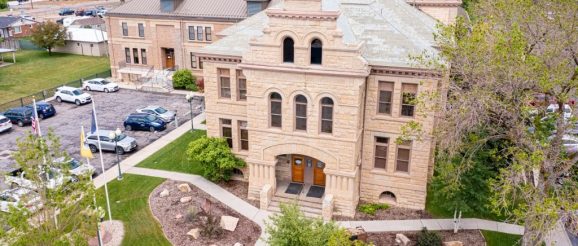Summit County mental health partnership featured for innovation during pandemic


Park Record file photo
A partnership created three summers ago to improve access to mental health services was recently featured in a national compendium about innovation during the coronavirus efforts to address the issue, as well as substance use, in Summit County.
The Healthy U Behavioral health plan, a collaboration between the county’s behavioral health services and the University of Utah Health Plans to support Medicaid recipients and patients without insurance living in Summit County, began operating in Sept. 2019. The partnership has led to more children accessing school-based mental health services, reduced appointment wait times and more bilingual therapists.
Nelson Clayton, the behavioral health manager, said they were just starting to build the program when the pandemic hit. The case study highlights how Healthy U Behavioral quickly worked to address clients’ concerns as businesses closed and unemployment rose as Summit County ranked among the top in the country for highest COVID-19 infection rates per capita.
Early on, providers began working with schools to deliver laptops to students’ homes to continue their access to education and mental health services. Therapists who had been working in schools began utilizing telehealth to serve kids – and their families. Eligible clients were also referred to a program that connects low-income households with free, high-speed internet.
Healthy U Behavioral also collaborated with Peace House, an organization focused on interpersonal violence and providing services to survivors of abuse, and Holy Cross Ministries, a nonprofit organization centered around the health and wellbeing of underserved communities, to promote available services. The information was posted in English and Spanish to reach a broader population.
Access to bilingual and bicultural services was also expanded through a psychiatric clinic partnership with the Huntsman Mental Health Institute in Salt Lake City. The initiative provided a native Spanish-speaking psychiatrist and social worker to clients.
Clayton said they also work with the Latino Behavioral Health Committee to address the need for services among the Spanish-speaking population. The group advocated for improved living conditions for people fearing eviction for reporting concerns. They’ve also created a peer support program that connects people with similar experiences.
Therapists from the Healthy U Behavioral network also joined in on public Q&A sessions hosted by the Summit County Health Department throughout the pandemic. They provided resources and initiated private conversations with participants seeking referrals to mental health services.
Aaron Newman, the county’s behavioral health director, says the partnership has daily impacts.
Healthy U Behavioral increased access to school-based programs from 36 students to 392 students within the first six months of operations. The number of individuals with Medicaid who began receiving services also grew from 300 people to 2,400 people. The wait time for outpatient appointments decreased from 90 days to four days as the number of in-network clinicians increased from six to 97. Overall, access to services has continued to improve since 2020.
“It’s been a tremendous win,” Newman said. “What’s made us so successful, it’s not just the county and it’s not just Healthy U, it’s we truly are a community approach to addressing issues of mental health in Summit County. That’s why we have a strategic plan that our community helps put together … and we have that willingness to participate in this.”
Clayton agreed. He said improved accessibility has helped reduce the stigma in receiving mental health services – making all the difference. He credits the county for taking on a greater level of coordination in responding to community behavioral health and addressing concerns.
“Park City is a place of extremes. You have people with a lot of wealth and people that don’t have that. And that can be hard, but it also offers a lot of opportunities. There are a lot of really strong community organizations that are really doing their best to find ways to help people,” Clayton said. “It’s not really about Healthy U, it’s about all of the people who are doing the work.”
